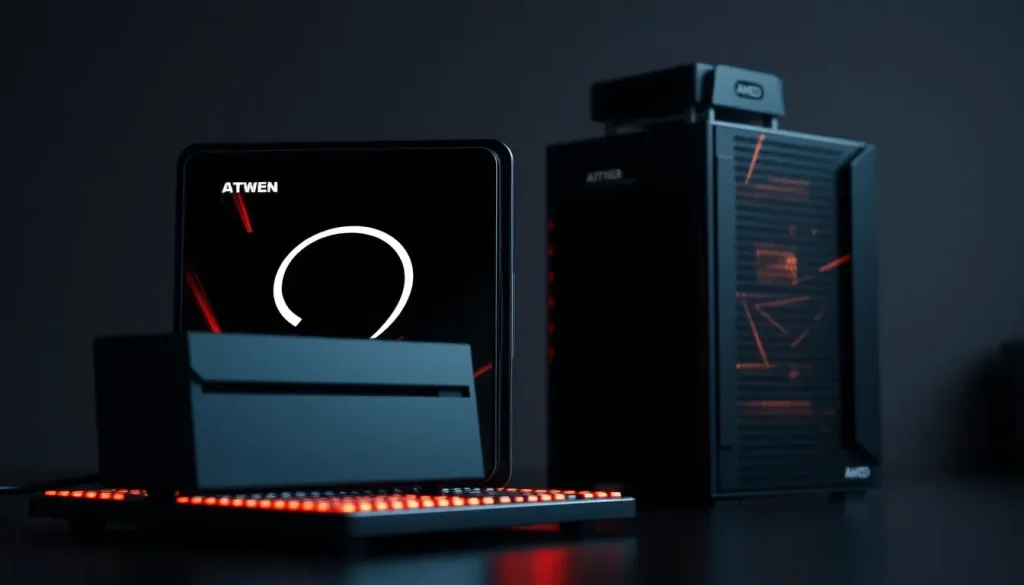Intel compares Core Ultra 200 with AMD Ryzen 9000 for gaming value

The rivalry between Intel and AMD has reached a boiling point once again, following the latest data from Intel regarding their Core Ultra 200 processors, which are built on the Arrow Lake-S architecture. In their recent presentations, Intel claims that their Core Ultra 200 series matches or even surpasses the performance of AMD's Ryzen 9000 series, particularly when comparing price per frame and productivity performance. However, a deeper analysis of the data reveals figures that raise eyebrows and spark controversy.
As a major player in the tech industry, Intel often showcases its products with a flair that can stir up strong opinions, whether positive or negative. They like to reveal their strengths, especially against AMD's offerings. While it's been noted that the performance gap is narrowing in gaming and productivity—excluding the X3D models from AMD—the question remains: what can we learn from the latest insights from Lip-Bu Tan and the team after months of independent reviews?
Intel’s Core Ultra 200 vs. Ryzen 9000: Performance Comparison
Intel has released a wealth of slides that compare its processors against AMD, categorizing the performance into two main sectors: gaming and productivity, usually focusing on performance at 1080p and multi-core benchmarks.
In the gaming sector, one of the most frequently highlighted comparisons is between the Core Ultra 7 265K priced at $299 and the Ryzen 7 9800X3D at $479. Intel emphasizes that in games like Rainbow Six Siege, their processor can achieve up to a 43% higher performance. Similarly, it performs well in titles like Star Wars Outlaws and Counter-Strike 2, where it also edges ahead.
However, in games that are more reliant on cache memory, such as Space Marine 2 and Stalker 2, the tables turn dramatically, with the Ryzen processor gaining a significant performance advantage of between 13% and 21%. Overall, while Intel's data presents a favorable geometric mean, the selection bias in the games tested is apparent, as many demanding titles are conspicuously absent from their analysis.
When considering the Core Ultra 9 285K, Intel directly compares it with the Ryzen 9 9900X and 9950X. They claim that their chip delivers similar performance in Starfield (176 FPS) and Spider-Man 2 (160 FPS), at a cost of $599 compared to over $700 for AMD’s counterparts. Even when facing the 9950X3D, which is designed for both gaming and multitasking supremacy, Intel concedes a 9% performance deficit in Space Marine 2 but argues they remain competitive in games like Starfield and Alan Wake 2.
Productivity and Multi-Core Performance: Intel’s Stronghold
When it comes to productivity tasks, Intel clearly outshines AMD. The Core Ultra 7 265K achieves a remarkable 78% higher score in Cinebench 2024 for multi-threaded tasks compared to the Ryzen 7 9700X, and it shows a 79% advantage in Blender's BMW27 benchmark. In video encoding, Intel processors demonstrate significant muscle, with performance gains ranging between 40% and 64% in H.264, which is crucial for content creators.
In the high-end segment, the Core Ultra 9 285K boasts a 34% lead in Cinebench multi-threading over the 9900X and a 32% improvement in After Effects. Only in applications like Photoshop and Premiere do the Ryzen processors maintain competitive performance.
Nevertheless, a critical aspect of these comparisons is the methodology used. Intel consistently reports results at 1080p High, a CPU-dependent configuration that tends to exaggerate performance differences. In 1440p or 4K resolutions, where the GPU plays a dominant role, the performance margins would likely narrow considerably. Conversely, lower settings at 1080p Low would likely amplify these differences.
Exclusion of Power Consumption and Efficiency Metrics
Critically, there is a glaring absence of references to power consumption, an area where AMD’s Zen 5 architecture and X3D models might excel. Additionally, there are no statistics on efficiency per watt, which is particularly noteworthy in a generation where energy efficiency is paramount.
In essence, Intel appears keen to emphasize that in terms of performance per watt, their Core Ultra 200 series is competitive with the Ryzen 9000 in gaming and superior in productivity. However, the bias in their data presentation, coupled with the wealth of independent reviews available, suggests a more nuanced reality.
While Intel has made strides, they still lag behind AMD in certain respects, particularly with the X3D options where AMD gains a notable edge in gaming. Marketing tactics may paint a favorable picture, but sales figures tell a different story: AMD continues to outperform Intel, which is now in a precarious position and must react swiftly to maintain competitiveness.
What to Consider When Choosing Between Intel and AMD
When deciding between Intel and AMD processors, several factors should be considered beyond just raw performance. Here’s what you need to evaluate:
- Performance Needs: Determine whether you prioritize gaming, productivity, or a mix of both.
- Budget: Assess how much you are willing to spend on a processor and consider the overall value.
- Future-proofing: Consider upcoming technologies and how they may affect your choice in the coming years.
- Power Consumption: Look for efficiency, especially if you're concerned about energy costs.
- Compatibility: Ensure that the chosen CPU is compatible with your existing or planned hardware.
- Brand Preference: Take into account any brand loyalty or personal preference you might have.
In the end, both companies offer compelling options that cater to different segments of the market. The choice between Intel and AMD may ultimately come down to specific use cases and personal preferences. For those interested in a deeper dive into the performance comparisons, you can explore this informative video:
As the landscape of processors continues to evolve, keeping an eye on both Intel and AMD's advancements will be crucial for consumers looking to make the best decision for their computing needs.




Leave a Reply